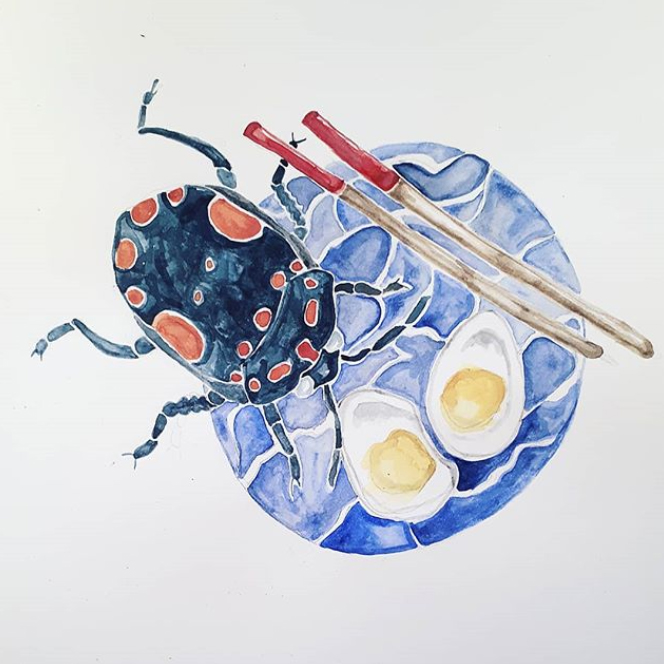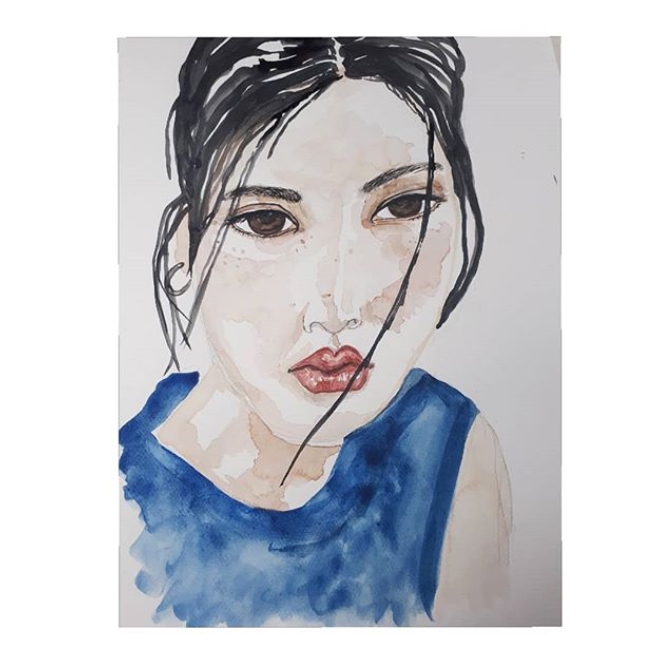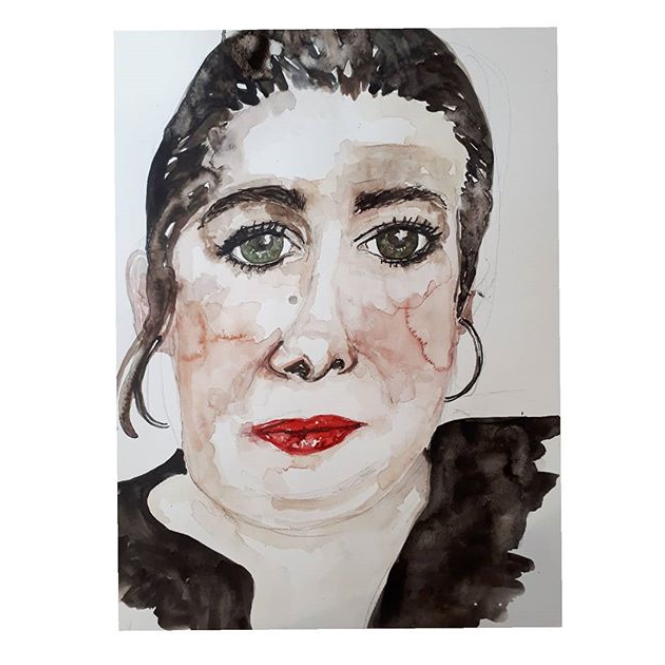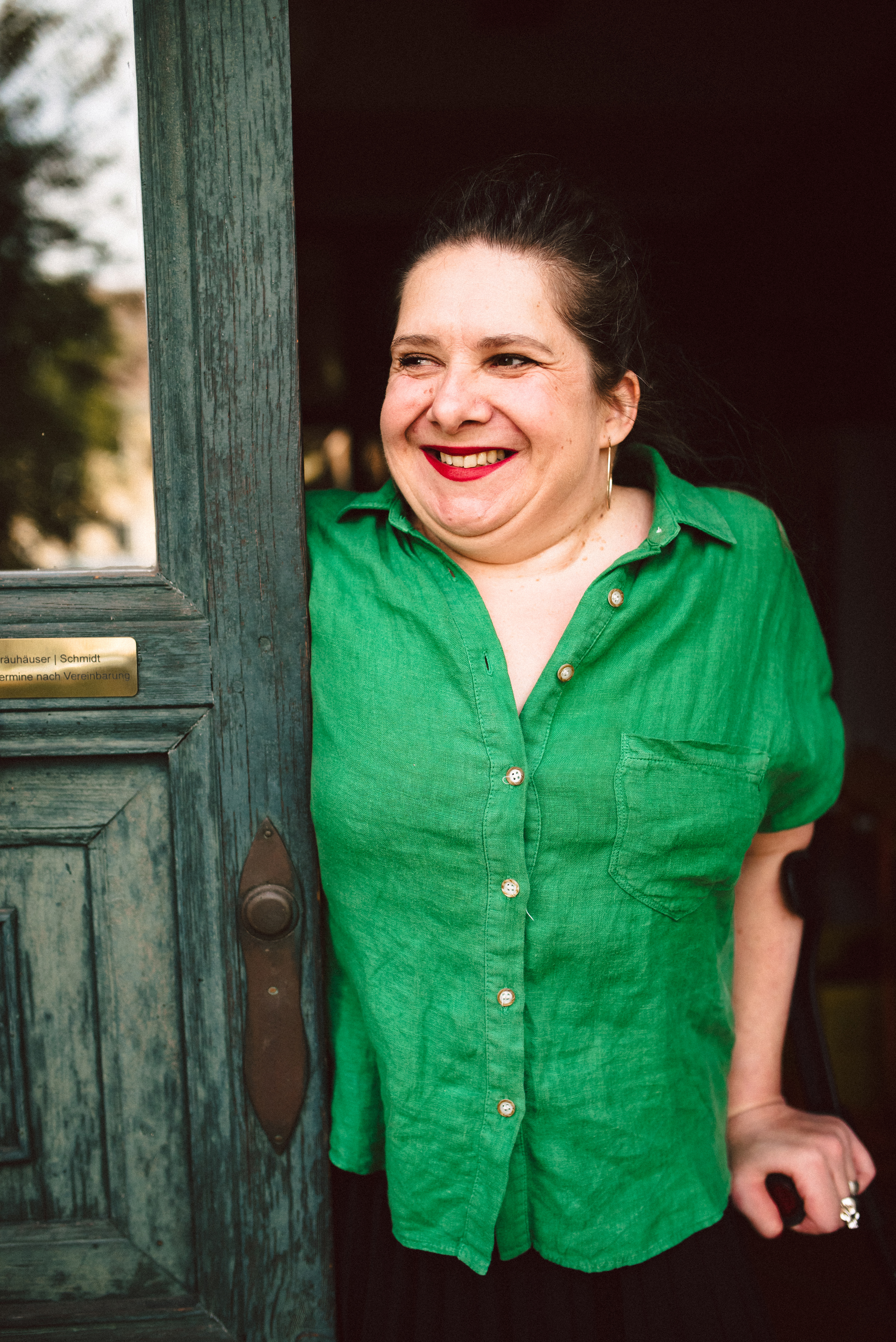interview
ANNTON BEATE SCHMIDT
artist & illustrator
︎Brandenburg/Germany
december 03, 2019
PCC: Can you tell me a little bit about your background and trajectory? Where are you from, and how did you start to explore art?
I was born in Frankfurt/Germany, into a rather non artistic family, but one that appreciated and supported creativity nevertheless. I was one of those kids that always drew, painted or built something. When it came to choosing a career path however, my parents didn’t believe in being an artist as a profession. And at that time, lacking role models to prove them wrong, I started training to become a movie and television editor instead, putting my paintbrushes away for a long time. I worked as an editor, produced short films, took on the position of director, and wrote movie scripts. The deeper I got involved with personal projects however, the more I felt I was moving away from the film industry, and fine art started to crawl back into my life. My time was split between the two areas, until after a couple of years of walking both paths it was clear that I needed to make a decision. I didn’t feel happy when I wasn’t in my studio.
PCC: Do you have any formal art training?
For the most part I am self trained, apart from the fact that I went to drawing classes held by a French painter as a kid. Which, after so many years, doesn’t even feel real anymore.
PCC: You have travelled and lived abroad a lot. How does this affect your work?
Yes, I have lived in many different places, including New Zealand. The main result is that I have developed a serious travel bug. Meaning, after three years of Brandenburg’s country side where I am currently located, I by now really long for a change of scenery.
In regards to my work, every place has its unique light, colours and stories, and even though you might not necessarily see this in my body of work, you definitely will see changes in style, techniques and topics. Sometimes this happens because of things that I experience in general, no matter where I am, but also and maybe more often because I change my surroundings.



PCC: You used to live in Berlin for many years where you had an open studio. How important is community to you? What about your local art scene inspires you? Anything that doesn’t/didn’t work for you?
My narrative on community has changed quite a bit over the years. And it will probably continue to do so. When living in Berlin, I had a studio in an old store, with huge shop windows facing the street, for everybody to watch what I was doing. I loved the energy of this; friends and neighbours stopping by for coffee, we had pop-up dinners there, and people had the opportunity to react directly to my work. It was truly inspiring. But with time my needs changed and my husband and I left the city, moving to a remote village in the countryside. My studio today has a window looking onto a beautiful brick wall of the neighbour’s house and a piece of lawn with scrubs. Nobody is passing by. It’s all quiet and focused. I am much more selective of who I spend time with these days, and much more aware of what really inspires rather than sidetracks me. I have realised that it is not just any kind of community that I need, but that it has to fit somehow, and that some of the most precious work related connections I have are actually with artist who live abroad. We connect via the internet. The man [Annton’s husband, who is a chef] and I though both miss hosting events on a compatible level, and we would love to start having guests over on a regular basis again. Our current home doesn’t provide the setting for this; therefore we are looking for a new home right now.
PCC: You are a differently abled person and artist. Did this have any influence on your artistic career, and if so how?
First of all, the term “differently abled” isn’t really my cup of tea. It might work for some, but I refer to myself as a disabled person. I am different and in my opinion there is no need to try to hide this under replacement abilities. Back to your question though, which I have asked myself many times too. But like being a woman in the art world, one can never really put a finger on these things. Didn’t I get a certain funding because of the disability, or had a gallery rejected me because of my situation or because of my work? You will never know, as nobody will ever say it out loud. What we do know, however, is that artists with disabilities are barely represented in galleries and museums, and that art schools are rarely accessible, and neither are residencies and grants. This is a vicious circle. The fewer artists with disabilities are represented, the less they are visible, the less they are visible the less inclusive the educational system will think, which leads to fewer chances for funding and grants, and on and on.
PCC: What professional or artistic goals do you have for the future?
Oh that is a tricky one, as what I will answer now is going to be out there in the universe. Seriously though, the next steps will be developing my new body of work, a series of portraits, and for 2020 I am planning to do a solo show. Probably in Berlin. Currently this means doing a lot of research for spaces. And then there is an offer to exhibit in Calabria, in Italy. This is early stages and I feel quite humbled by the request.
PCC: What are you working on currently? Do you have any plans for future projects?
My work usually engages with the idea of identity: ancestry, experiences, visions, and surroundings, all the stuff that creates our inner landscapes and that makes us the distinct human being that we are. After approaching this topic from many different angles, I have recently returned to portraits. Stories written onto faces, so to say. I am pretty happy about this development and am excited about where this is going to lead me.



PCC: What are you influences, personal, artistic, intellectual or otherwise?
The biggest influence in my life has always been people. People and their unique life stories, their views on the world or even the places they live in. I love to read biographies and philosophical essays. Apart from that, food is a huge source of inspiration for me too, as nothing comes closer to us but the food that we eat. It has a lot to do with our identity, with history and progression at the same time. Food is able to make us feel at home and safe, but also insecure or eager to learn new things.
PCC: What is the hardest challenge for you as an artist?
Like many artists, time management and accountability have always been the biggest challenges for me. Nobody will ever know or ask me about the things I didn’t do. It is my responsibility to show up in the studio, create schedules, and design my path as an artist. Unfortunately, I am really good when it comes to initiating ideas and projects, but I definitely need a lot of discipline when it comes to reaching the finish line. There is so much inspiration out there, so man ideas haven’t been picked up, that it is quite easy to lose focus.
PCC: You are very active socially and politically. Do you want to tell me a little about the how and why?
It is interesting to be asked this question right now, because as of late I have said NO to many requests: I have left a political party and some boards that were dealing with issues of accessibility and inclusion. They say you should pick your battles wisely, and party business very often didn’t appear effective or differentiated enough for me. I also strongly believe that expertise is worth being paid for. But especially in the area of inclusion, companies or government organisations are used to getting it for free. I am not willing to do this anymore, because respect only seems to come with proper payment. For all of these reasons I am in the process of looking for different ways to get involved. Whatever will happen from here on, I will always speak my mind, be it around the family table or in public.
PCC: What do you think is the function/role of art/the modern artists in society?
The role an artist chooses to take on is an entirely individual decision. Something each and every one of us needs to figure out for themselves. That said, I sure would love to see more artists interfering with society, would like to see more work taking on topics like racism, marginalisation in general, or feminism. Art is a powerful tool to touch people, to question prejudices, and maybe to open new doors.
PCC: If you could meet any person living today, who would it be?
Another tricky question, as there are so many amazing people out there. If I really have to choose only one, I would probably go with Oprah Winfrey. That’s maybe not the most creative choice, but she is a force, an influential powerhouse, who overcame shitloads of horrible things, without becoming cynical and hard. Something I deeply admire!
Annton Beate Schmidt website
Annton Beate Schmidt Instagram
interview: Petra Zehner


